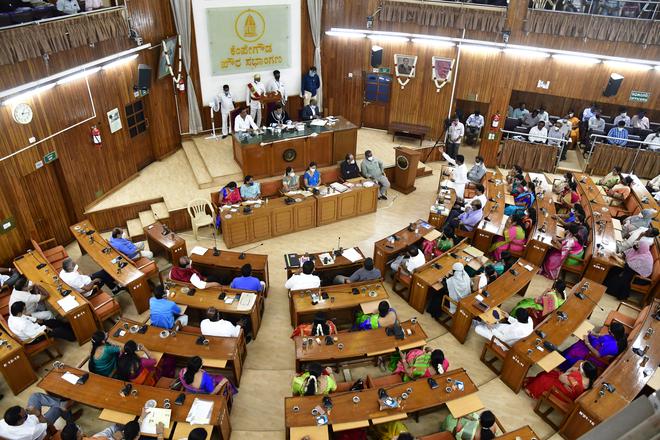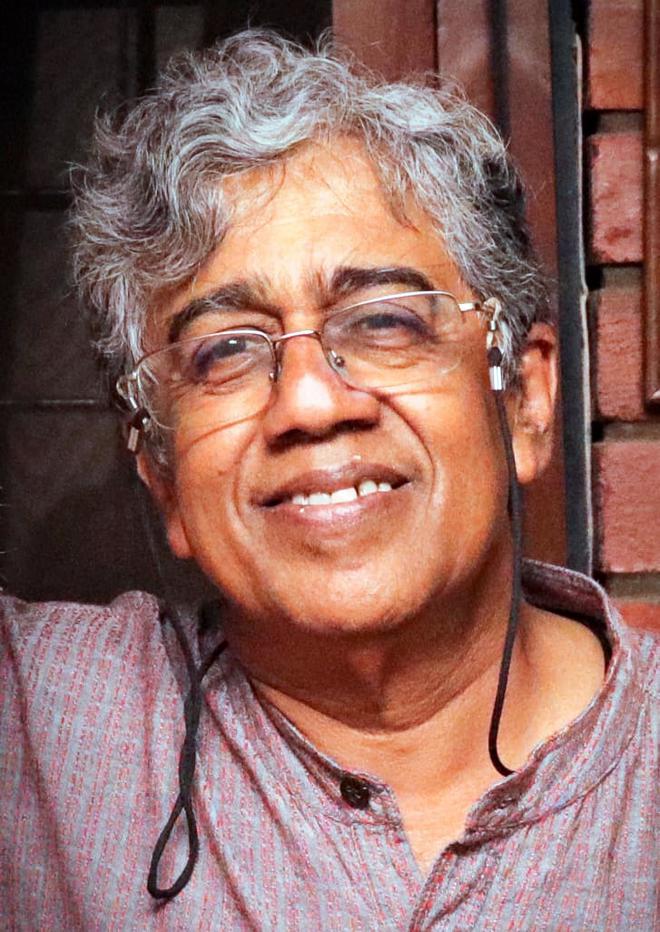Imagine this scenario: Lok Sabha polls cancelled and an unelected and unconstitutional force is taking over the running of the country, or maybe extended President’s Rule is imposed on handpicked states without much explanation. Imagine the rage and outpourings from political parties, the intelligentsia, the courts and perhaps even from you and me who are just trying to eke out a living. Now look closer home: our Namma Bengaluru. Observe the deafening silence to the systematic decimation of democracy at our own doorsteps.

The city council (the democratically-elected councillors who make up the Bruhat Bengaluru Mahanagara Palike (BBMP) who are actually supposed to run the city) has been absent for four years. Even worse, this is the second time in about a dozen years that this has happened. Depressingly, this means that it has nothing to do with the flavour of the political party in power in the state. Empirical data clearly shows that there is no intention whatsoever to devolve power and governance to the city level by any political party.

Reasons for disregard
We need to really analyse the reasons for this gross disregard of our Constitution and the quiet erasure of democracy. The first is easy to fathom. Bengaluru is the disproportionate wealth capital of the State. If you control the city you control the power associated it and a lot of the benefits of continuously siphoning off vast amounts of lucre from the many new projects or upkeep budgets. Its like a no holds barred ATM.
A possible second reason could be a bit more insidious. Only from the councillor pool can a new set of leaders arise. Perhaps, the emergence of a new genre of independent councillors or even the birth of new political formations. Even new leaders of existing parties. All these threaten the status quo and power structures. It is not hard to imagine that in its truest sense, the Mayor of the city could be the second most powerful position next to the Chief Minister. These are developments that are loathed by the old guard.
A third probable reason is even more depressing. It could be that all political parties of the State have absolutely no concern of the Constitution of India. And worse, that they really have no knowledge of the constitution or governance and are simply robber barons of old. Add to this add the pure lack of skill and we have a dangerous and debilitating cauldron of power seekers, corruption and ineptitude.
What Constitution says
It would be useful to actually see what our Constitution says about local governance.The 73rd and 74th amendments to our Constitution, which recognised and empowered local government, is now 30 years old.The 73rd amendment for rural India (the Panchayti Raj) has had success but the 74th for the municipalities (the Nagarpalika Act) has been practically consigned to the dustbins of history. The 74th in its idea was simple that municipalities run and plan the city. In effect it would mean for our city that the various service wings of administration, the veritable alphabet mix of organisations (BDA, BWSSB, BMTC, BMRCL, BESCOM and a whole host of others) would report in some form or other to the municipaliity. The municipality would have elected councillors who are in constant touch with the ground and more importantly accessible and answerable directly to us the masses on a day-to-day basis.
There are arguments even from a citizen and intellectual viewpoint as to why the 74th has not been implemented or is difficult to implement. These relate to its wordings and the inexactness of how it is to be implemented. True enough, but to equate that to a non-starter and zero attempts to see it through seems ingenious, especially when we are talking of something which is the bedrock of democracy.
An extension of this thinking is the view that councillors are not to be trusted and are self serving. That however seems to be a commentary of the entire political system. There is not much argument that the current form of governance or non-governance has not helped the city. Democracy is all about checks and balances. In all the tiers of the government it is only in this third tier that citizens have a right and opportunity to keep the administration accountable on a real time basis for real world problems. Of course there is no magic bullet. Elections to the city council cannot set the record straight overnight. But it does remain the only place to start for the kind of governance we have chosen for ourselves.
Faultlines of democracy
And therein comes another factor, one which relates to the fundamental fault lines of democracy itself. It is messy, time consuming and fraught with a zillion viewpoints. Even the most sincere civic-minded activist finds it easier to get their pet project or viewpoint implemented with a direct interaction with an MLA or a senior bureaucrat. This rubs both ways. It is also easier to get a self serving project of dubious public interest through. A clarity on whether governance is a process or the end result sometimes escapes us. The powers that be are fully aware that in a metropolitan like ours with very varied demographics and sets of priorities, lack of unity of purpose is something to be exploited. There could be one constituency which is worried about potholes in an otherwise good road system and another which is talking of the lack of roads itself. It is a choice we have to make, whether to go by a difficult but ultimately rewarding process or the instant gratification method of pushing through a particular brainchild.
India is now into the proverbial “dance of democracy” phase, a celebration and spectacle like an unfolding mega drama series on an OTT platform. The trouble is that after the season is over, one has only slight memories of some scenes, because our attention would have shifted back to the task of mundane living. A wise man once said that democracy is what happens between elections. I would add another caveat: it’s what happens where rubber hits the road, where we live, breathe and survive and not in the higher echelons of government and society. Because the proof of the pudding is always in the eating, not in the recipe.
(The author is a civic activist and President of Citizens’ Action Forum)







